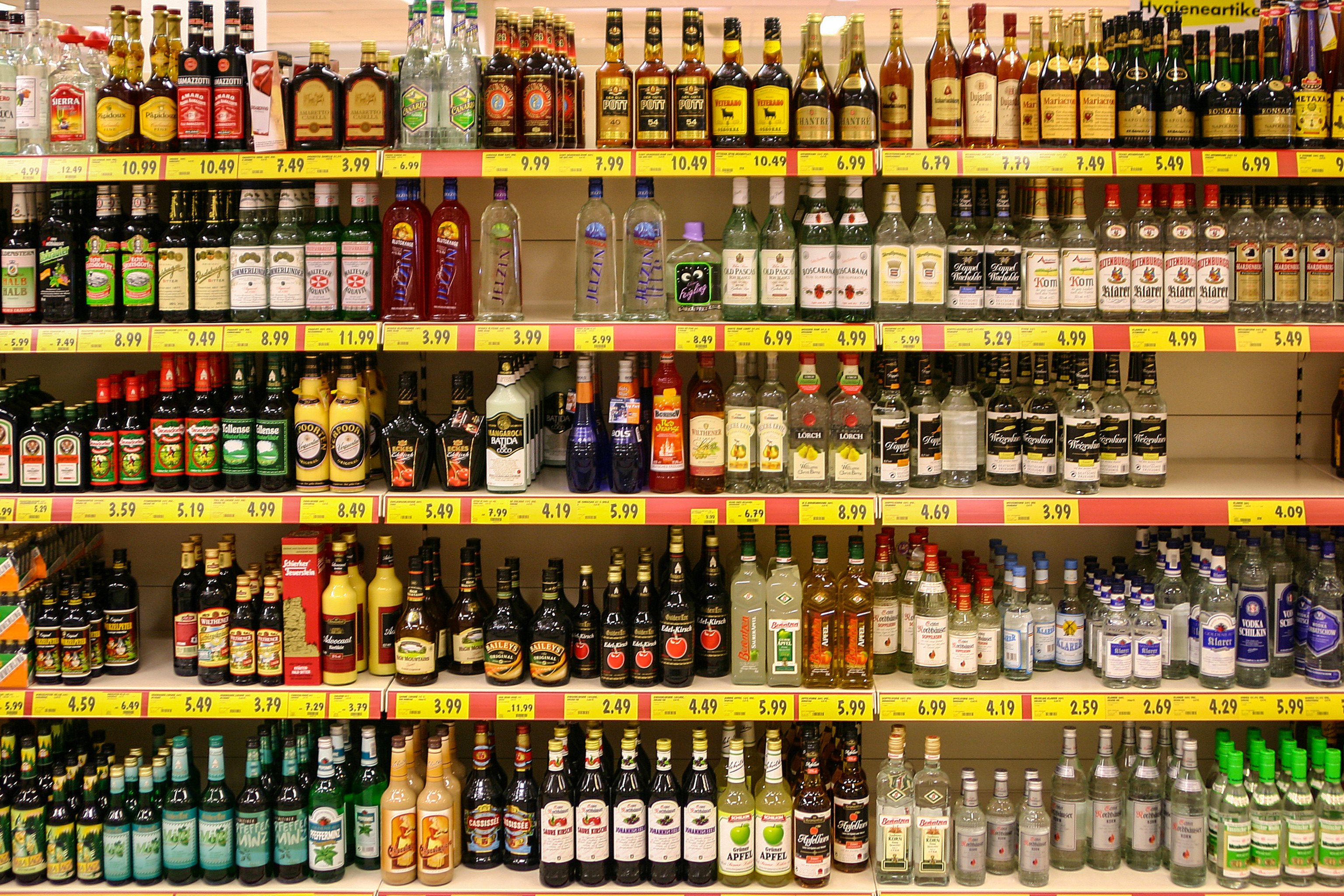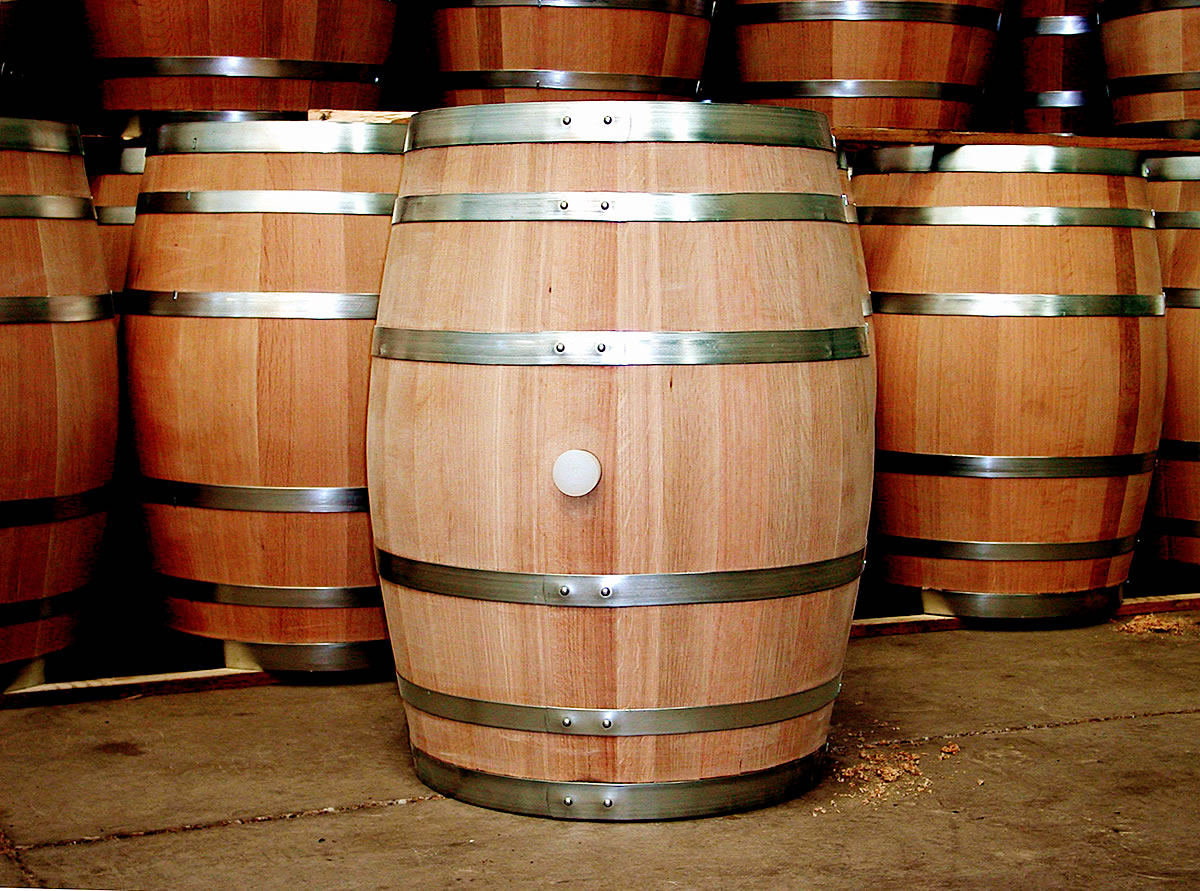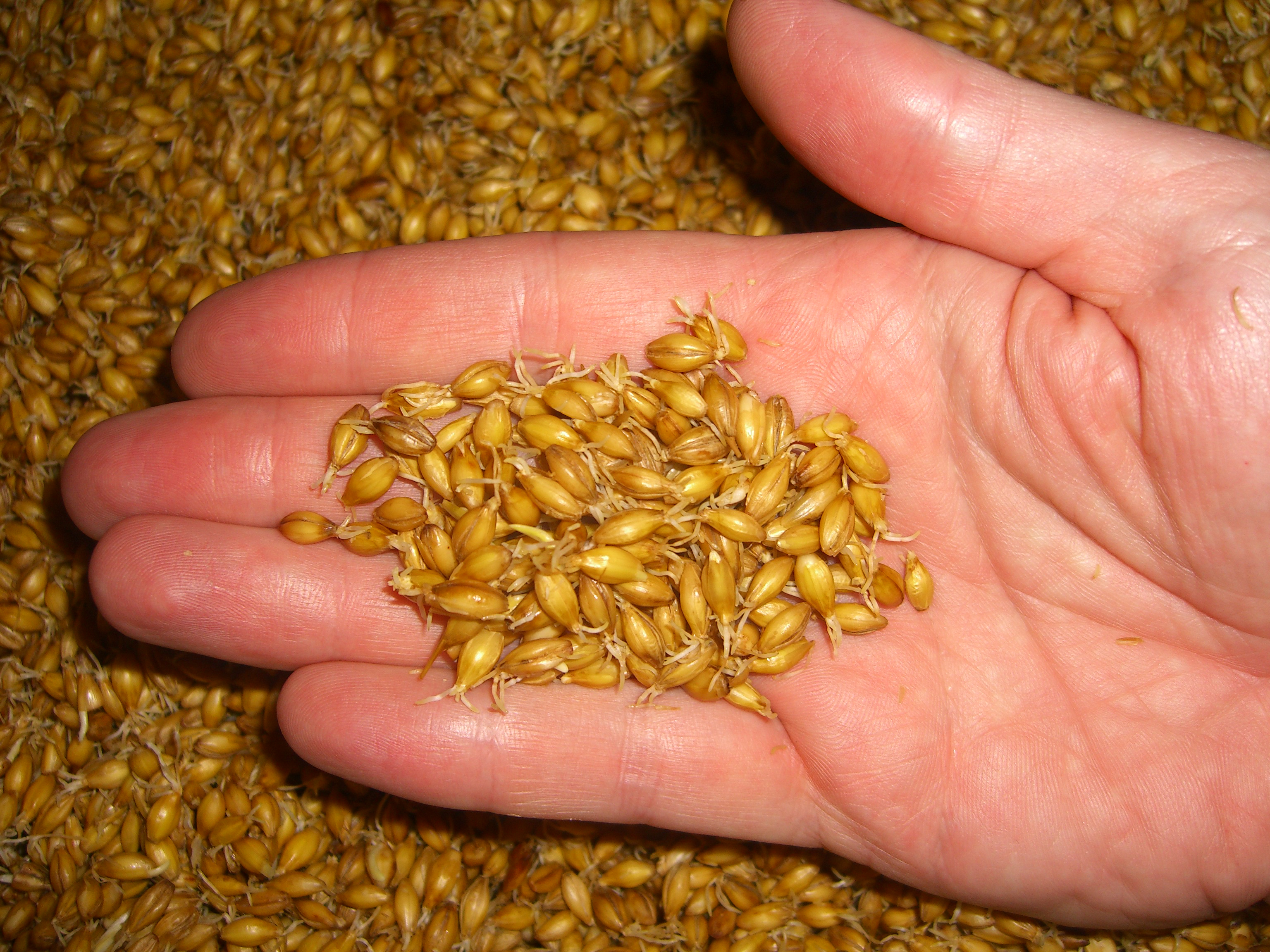|
Whisky
Whisky or whiskey is a type of distilled alcoholic beverage made from fermented grain mash. Various grains (which may be malted) are used for different varieties, including barley, corn, rye, and wheat. Whisky is typically aged in wooden casks, which are typically made of charred white oak. Uncharred white oak casks previously used for the aging of sherry are also sometimes used. Whisky is a strictly regulated spirit worldwide with many classes and types. The typical unifying characteristics of the different classes and types are the fermentation of grains, distillation, and aging in wooden barrels. Etymology The word ''whisky'' (or ''whiskey'') is an anglicisation of the Classical Gaelic word (or ) meaning "water" (now written as in Modern Irish, and in Scottish Gaelic). This Gaelic word shares its ultimate origins with Germanic ''water'' and Slavic ''voda'' of the same meaning. Distilled alcohol was known in Latin as ("water of life"). This was translated into Ol ... [...More Info...] [...Related Items...] OR: [Wikipedia] [Google] [Baidu] |
Scotch Whisky
Scotch whisky (; sco, Scots whisky/whiskie, whusk(e)y; often simply called whisky or Scotch) is malt whisky or grain whisky (or a blend of the two), made in Scotland. All Scotch whisky was originally made from malted barley. Commercial distilleries began introducing whisky made from wheat and rye in the late 18th century. , there were 141 whisky distilleries operating in Scotland. All Scotch whisky must be aged immediately after distillation in oak barrels for at least three years. Any age statement on a bottle of Scotch whisky, expressed in numerical form, must reflect the age of the youngest whisky used to produce that product. A whisky with an age statement is known as guaranteed-age whisky. A whisky without an age statement is known as a no age statement (NAS) whisky, the only guarantee being that all whisky contained in that bottle is at least three years old. The minimum bottling strength according to the regulation is 40% alcohol by volume. Scotch whisky is divided ... [...More Info...] [...Related Items...] OR: [Wikipedia] [Google] [Baidu] |
Japanese Whisky
Japanese whisky is a style of whisky developed and produced in Japan. Whisky production in Japan began around 1870, but the first commercial production was in 1923 upon the opening of the country's first distillery, Yamazaki. Broadly speaking, the style of Japanese whisky is more similar to that of Scotch whisky than other major styles of whisky. There are several companies producing whisky in Japan, but the two best-known and most widely available are Suntory and Nikka. Both of these produce blended as well as single malt whiskies and blended malt whiskies, with their main blended whiskies being Suntory , and Black Nikka Clear. There are also many special bottlings and limited editions. Style The production of Japanese whisky began as a conscious effort to recreate the style of Scotch whisky. Pioneers like Taketsuru carefully studied the process of making Scotch whisky, and went to great lengths in an attempt to recreate that process in Japan. The location of Yoichi in Ho ... [...More Info...] [...Related Items...] OR: [Wikipedia] [Google] [Baidu] |
Irish Whiskey
Irish whiskey ( ga, Fuisce or ''uisce beatha'') is whiskey made on the island of Ireland. The word 'whiskey' (or whisky) comes from the Irish , meaning ''water of life''. Irish whiskey was once the most popular spirit in the world, though a long period of decline from the late 19th century onwards greatly damaged the industry, so much so that although Ireland boasted at least 28 distilleries in the 1890s, by 1966 this number had fallen to just two, and by 1972 the remaining distilleries, Bushmills Distillery and Old Midleton Distillery (replaced by New Midleton Distillery), were owned by just one company, Irish Distillers. The monopoly situation was ended by an academically-conceived launch of the first new distillery in decades, Cooley Distillery, in 1987. Since the 1990s, Irish whiskey has seen a resurgence in popularity and has been the fastest-growing spirit in the world every year since 1990. With exports growing by over 15% per annum, existing distilleries have been expa ... [...More Info...] [...Related Items...] OR: [Wikipedia] [Google] [Baidu] |
Uisce Beatha
(), literally "water of life", is the name for whiskey in Irish. It is derived from the Old Irish ''uisce'' ("water") and ''bethu'' ("life"). The Scottish equivalent is rendered ''uisge beatha''. Early forms of the word in English included uskebeaghe (1581), usquebaugh (1610), usquebath (1621), and usquebae (1715). The word "whiskey" (as spelt in Ireland and the United States) or "whisky" (the typical spelling in the rest of the world) is simply an anglicized version of this phrase, stemming from a mispronunciation of either ''uisce'' in Ireland or ''uisge'' in Scotland. According to the Whiskey Museum in Dublin, the different spelling began as a marketing decision which started a trend soon followed by other companies; the extra "e" was regardless a late addition, and does not appear in the 1879 book ''The Truths About Whisky'', which was published by the big four biggest Dublin distillers. This development may in turn have influenced the modern Irish word ''fuisce'' ("whiskey") ... [...More Info...] [...Related Items...] OR: [Wikipedia] [Google] [Baidu] |
Barley
Barley (''Hordeum vulgare''), a member of the grass family, is a major cereal grain grown in temperate climates globally. It was one of the first cultivated grains, particularly in Eurasia as early as 10,000 years ago. Globally 70% of barley production is used as animal fodder, while 30% as a source of fermentable material for beer and certain distilled beverages, and as a component of various foods. It is used in soups and stews, and in barley bread of various cultures. Barley grains are commonly made into malt in a traditional and ancient method of preparation. In 2017, barley was ranked fourth among grains in quantity produced () behind maize, rice and wheat. Etymology The Old English word for barley was ', which traces back to Proto-Indo-European and is cognate to the Latin word ' "flour" (''see corresponding entries''). The direct ancestor of modern English ''barley'' in Old English was the derived adjective ''bærlic'', meaning "of barley". The first citation ... [...More Info...] [...Related Items...] OR: [Wikipedia] [Google] [Baidu] |
Bourbon Whiskey
Bourbon () is a type of barrel-aged American whiskey made primarily from corn. The name derives from the French Bourbon dynasty, although the precise source of inspiration is uncertain; contenders include Bourbon County in Kentucky and Bourbon Street in New Orleans, both of which are named after the dynasty.Kiniry, Laura.Where Bourbon Really Got Its Name and More Tips on America's Native Spirit. ''Smithsonian.com''. June 13, 2013. The name bourbon was not applied until the 1850s, and the Kentucky etymology was not advanced until the 1870s. Bourbon has been distilled since the 18th century. Although bourbon may be made anywhere in the United States, it is strongly associated with the American South in general, and with Kentucky in particular. As of 2014, distillers' wholesale market revenue for bourbon sold within the U.S. was about $2.7 billion, and bourbon made up about two thirds of the $1.6 billion of U.S. exports of distilled spirits. According to the Distilled Spirits Cou ... [...More Info...] [...Related Items...] OR: [Wikipedia] [Google] [Baidu] |
Liquor
Liquor (or a spirit) is an alcoholic drink produced by distillation of grains, fruits, vegetables, or sugar, that have already gone through alcoholic fermentation. Other terms for liquor include: spirit drink, distilled beverage or hard liquor. The distillation process concentrates the liquid to increase its alcohol by volume. As liquors contain significantly more alcohol ( ethanol) than other alcoholic drinks, they are considered 'harder'; in North America, the term ''hard liquor'' is sometimes used to distinguish distilled alcoholic drinks from non-distilled ones, whereas the term ''spirits'' is more common in the UK. Some examples of liquors include vodka, rum, gin, and tequila. Liquors are often aged in barrels, such as for the production of brandy and whiskey, or are infused with flavorings to form a flavored liquor such as absinthe. While the word ''liquor'' ordinarily refers to distilled alcoholic spirits rather than beverages produced by fermentation alone ... [...More Info...] [...Related Items...] OR: [Wikipedia] [Google] [Baidu] |
Alcoholic Spirit
Liquor (or a spirit) is an alcoholic drink produced by distillation of grains, fruits, vegetables, or sugar, that have already gone through alcoholic fermentation. Other terms for liquor include: spirit drink, distilled beverage or hard liquor. The distillation process concentrates the liquid to increase its alcohol by volume. As liquors contain significantly more alcohol (ethanol) than other alcoholic drinks, they are considered 'harder'; in North America, the term ''hard liquor'' is sometimes used to distinguish distilled alcoholic drinks from non-distilled ones, whereas the term ''spirits'' is more common in the UK. Some examples of liquors include vodka, rum, gin, and tequila. Liquors are often aged in barrels, such as for the production of brandy and whiskey, or are infused with flavorings to form a flavored liquor such as absinthe. While the word ''liquor'' ordinarily refers to distilled alcoholic spirits rather than beverages produced by fermentation alone, it c ... [...More Info...] [...Related Items...] OR: [Wikipedia] [Google] [Baidu] |
Sherry
Sherry ( es, jerez ) is a fortified wine made from white grapes that are grown near the city of Jerez de la Frontera in Andalusia, Spain. Sherry is produced in a variety of styles made primarily from the Palomino grape, ranging from light versions similar to white table wines, such as Manzanilla and fino, to darker and heavier versions that have been allowed to oxidise as they age in barrel, such as Amontillado and oloroso. Sweet dessert wines are also made from Pedro Ximénez or Moscatel grapes, and are sometimes blended with Palomino-based sherries. Under the official name of Jerez-Xérès-Sherry, it is one of Spain's wine regions, a Denominación de Origen Protegida (DOP). The word ''sherry'' is an anglicisation of Xérès (Jerez). Sherry was previously known as '' sack'', from the Spanish ''saca'', meaning "extraction" from the solera. In Europe, "sherry" has protected designation of origin status, and under Spanish law, all wine labelled as "sherry" must legally ... [...More Info...] [...Related Items...] OR: [Wikipedia] [Google] [Baidu] |
Cask
A barrel or cask is a hollow cylindrical container with a bulging center, longer than it is wide. They are traditionally made of wooden staves and bound by wooden or metal hoops. The word vat is often used for large containers for liquids, usually alcoholic beverages; a small barrel or cask is known as a keg. Modern wooden barrels for wine-making are made of French common oak (''Quercus robur''), white oak (''Quercus petraea''), American white oak (''Quercus alba''), more exotic is Mizunara Oak all typically have standard sizes: Recently Oregon Oak (Quercus Garryana) has been used. *"Bordeaux type" , *"Burgundy type" and *"Cognac type" . Modern barrels and casks can also be made of aluminum, stainless steel, and different types of plastic, such as HDPE. Someone who makes barrels is called a "barrel maker" or cooper (coopers also make buckets, vats, tubs, butter churns, hogsheads, firkins, kegs, kilderkins, tierces, rundlets, puncheons, pipes, tuns, butts, pins, tr ... [...More Info...] [...Related Items...] OR: [Wikipedia] [Google] [Baidu] |
Malt
Malt is germinated cereal grain that has been dried in a process known as " malting". The grain is made to germinate by soaking in water and is then halted from germinating further by drying with hot air. Malted grain is used to make beer, whisky, malted milk, malt vinegar, confections such as Maltesers and Whoppers, flavored drinks such as Horlicks, Ovaltine, and Milo, and some baked goods, such as malt loaf, bagels, and Rich Tea biscuits. Malted grain that has been ground into a coarse meal is known as "sweet meal". Malting grain develops the enzymes (α-amylase, β-amylase) required for modifying the grains' starches into various types of sugar, including monosaccharide glucose, disaccharide maltose, trisaccharide maltotriose, and higher sugars called maltodextrines. It also develops other enzymes, such as proteases, that break down the proteins in the grain into forms that can be used by yeast. The point at which the malting process is stopped affects th ... [...More Info...] [...Related Items...] OR: [Wikipedia] [Google] [Baidu] |


.jpg)




